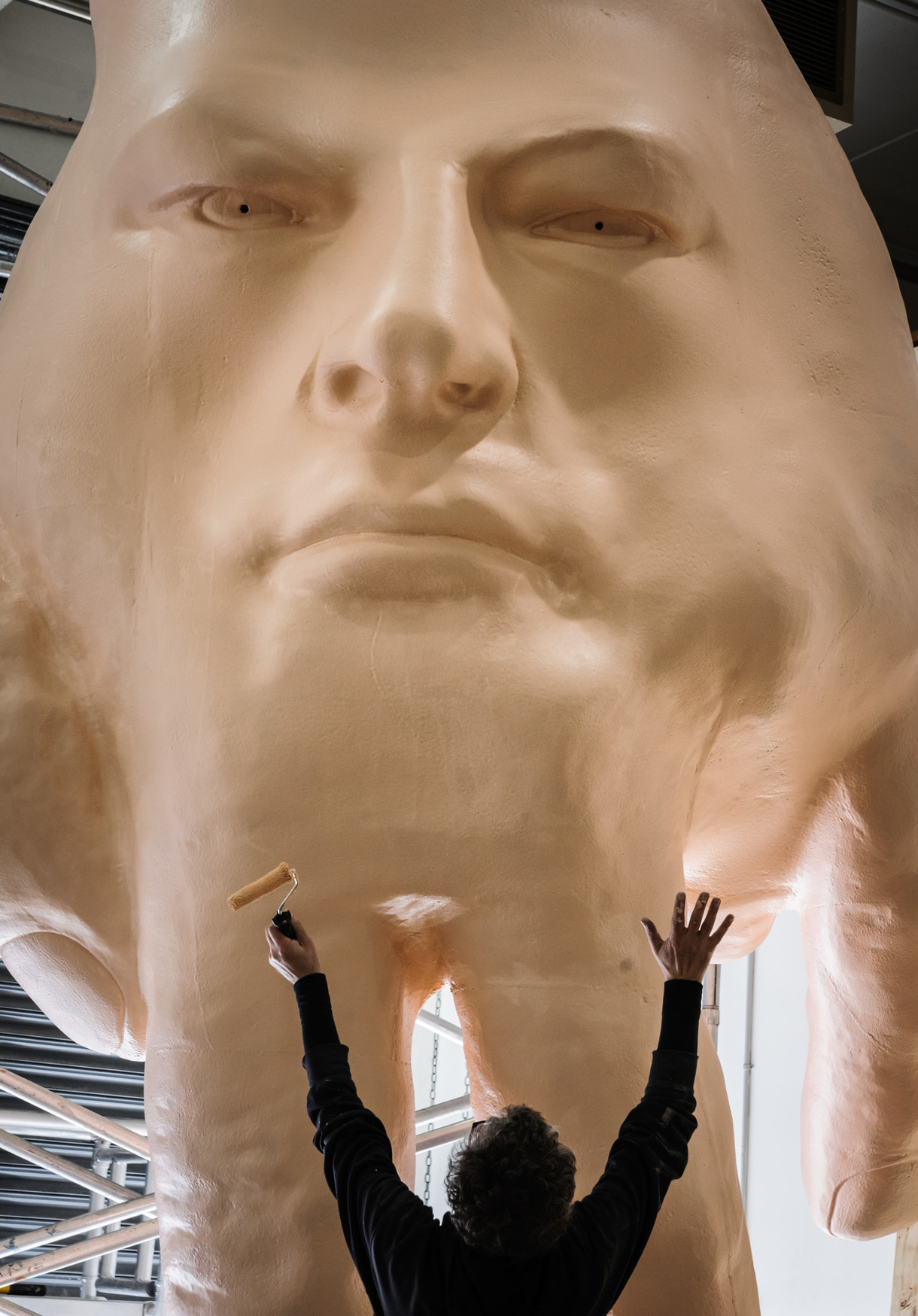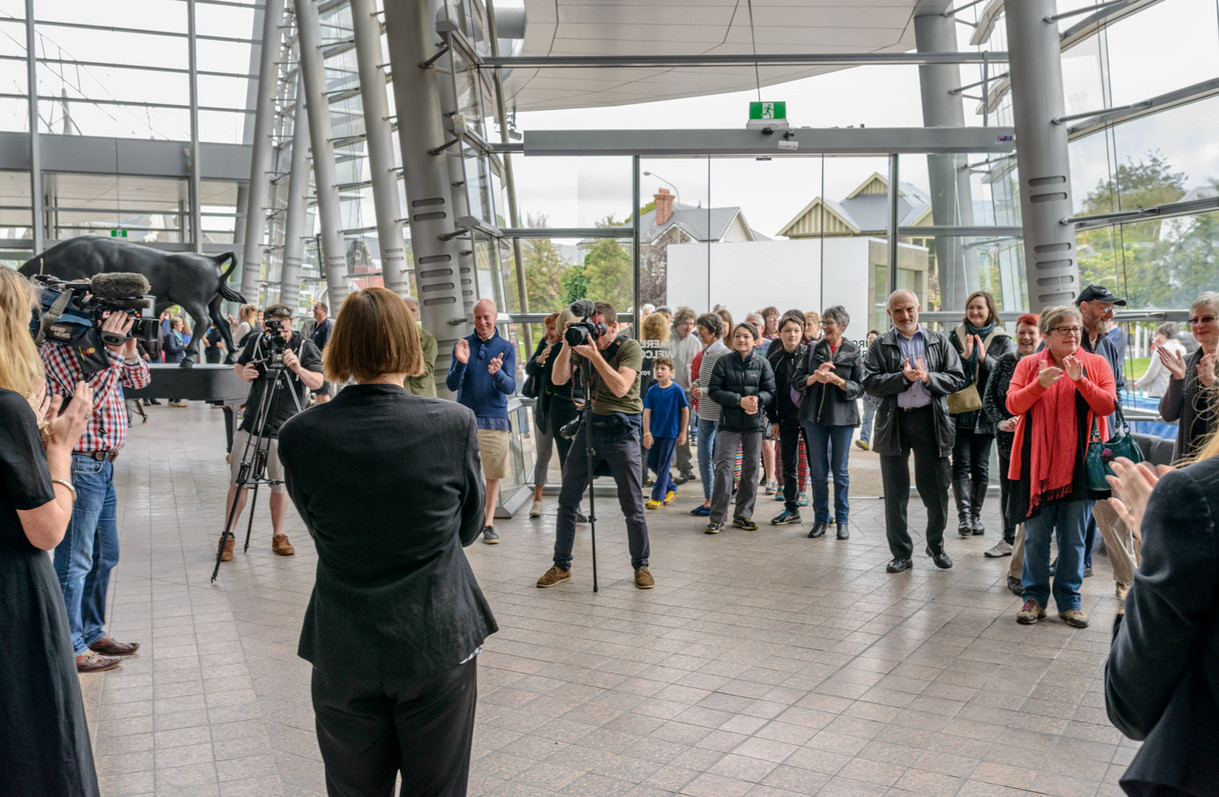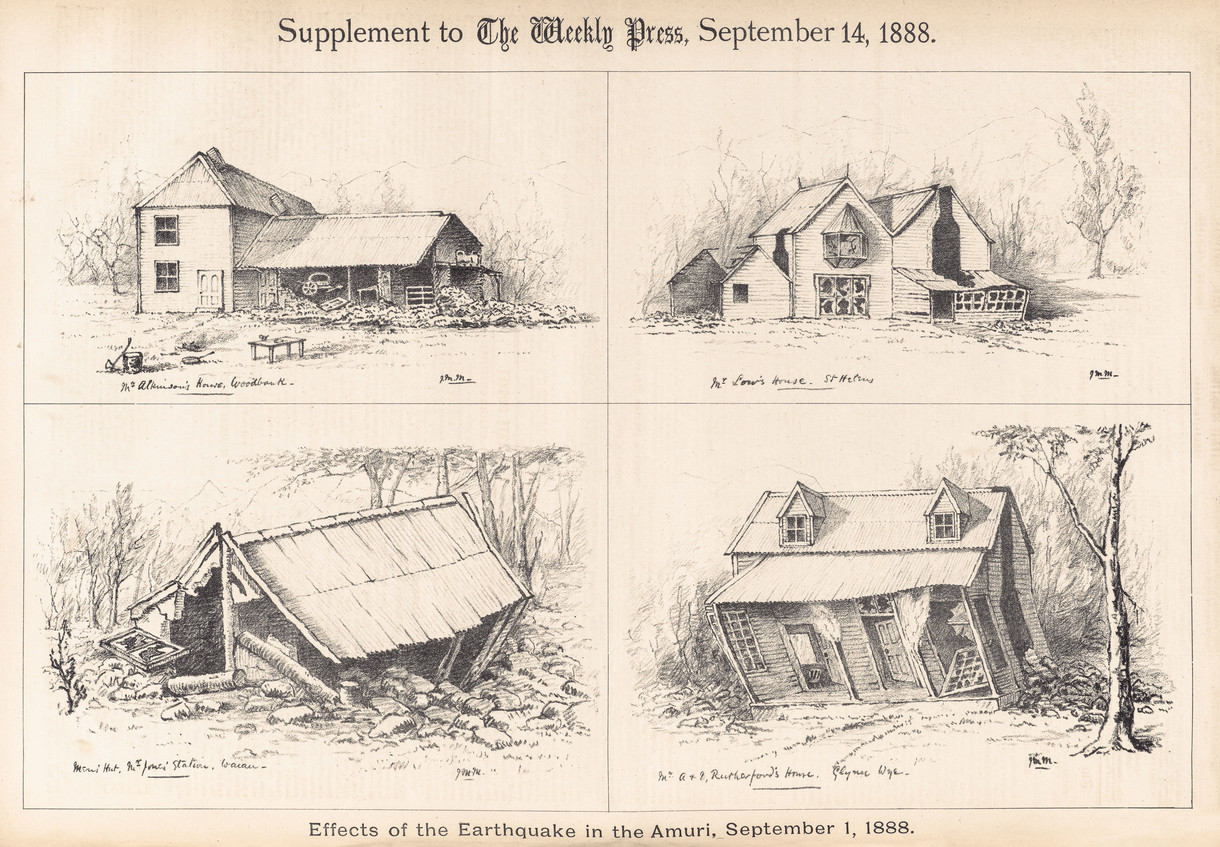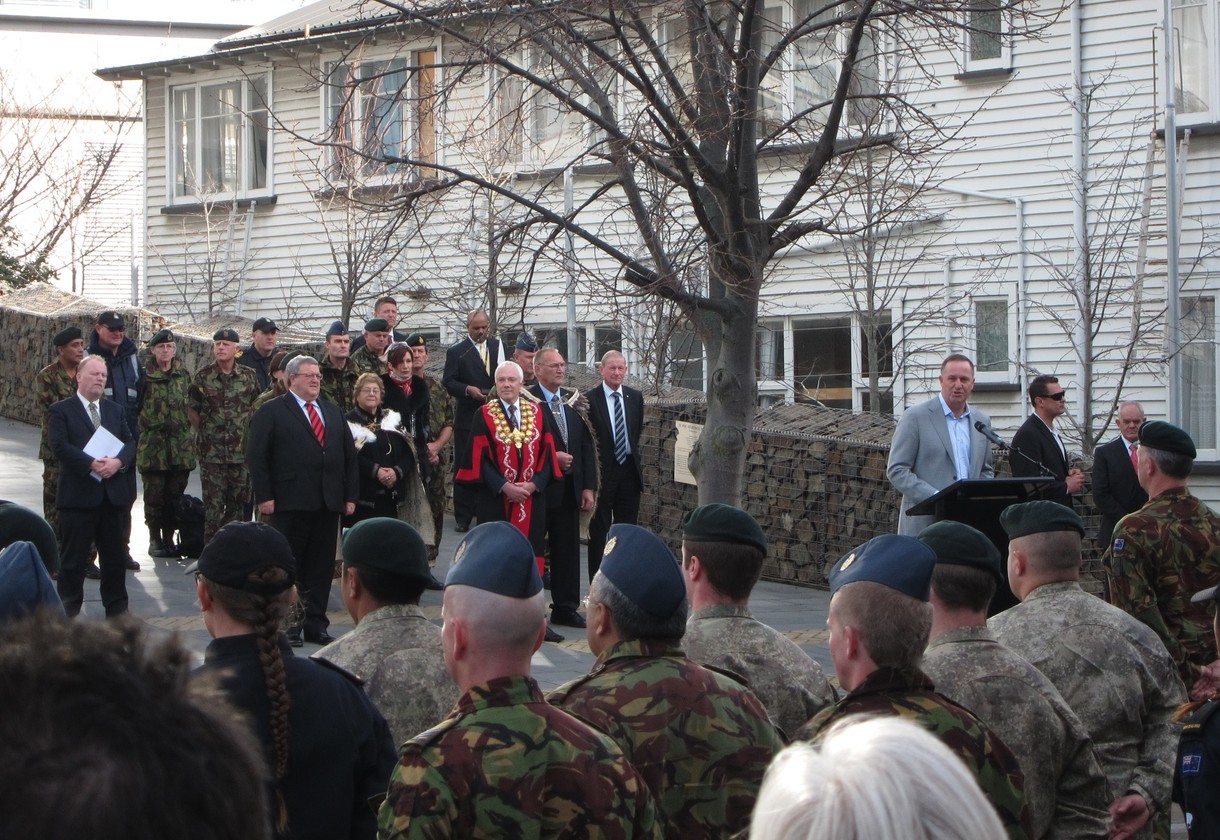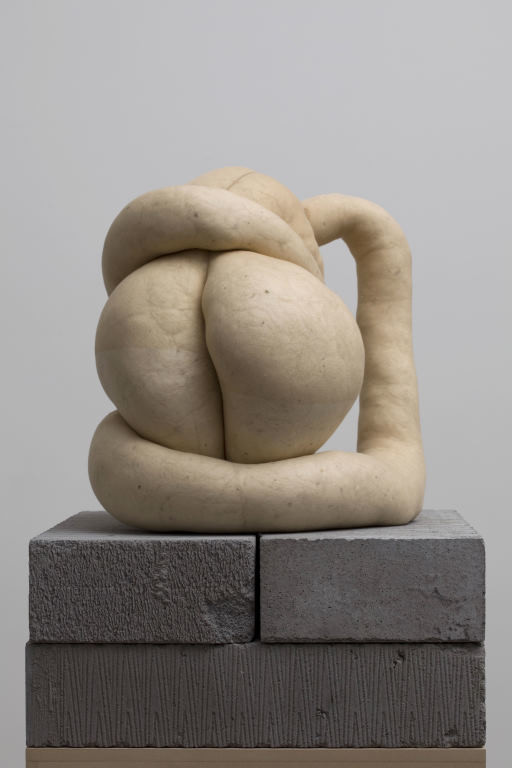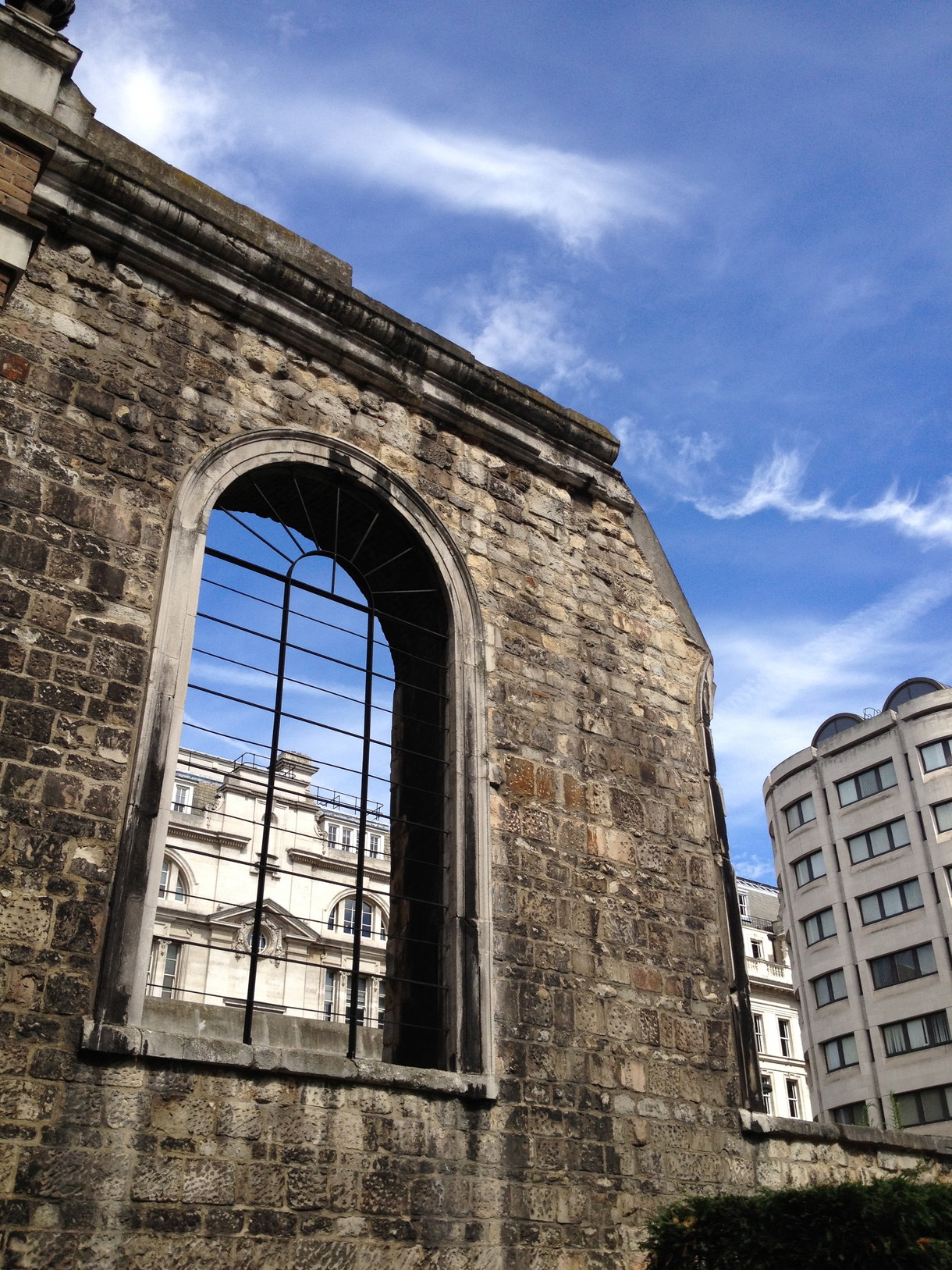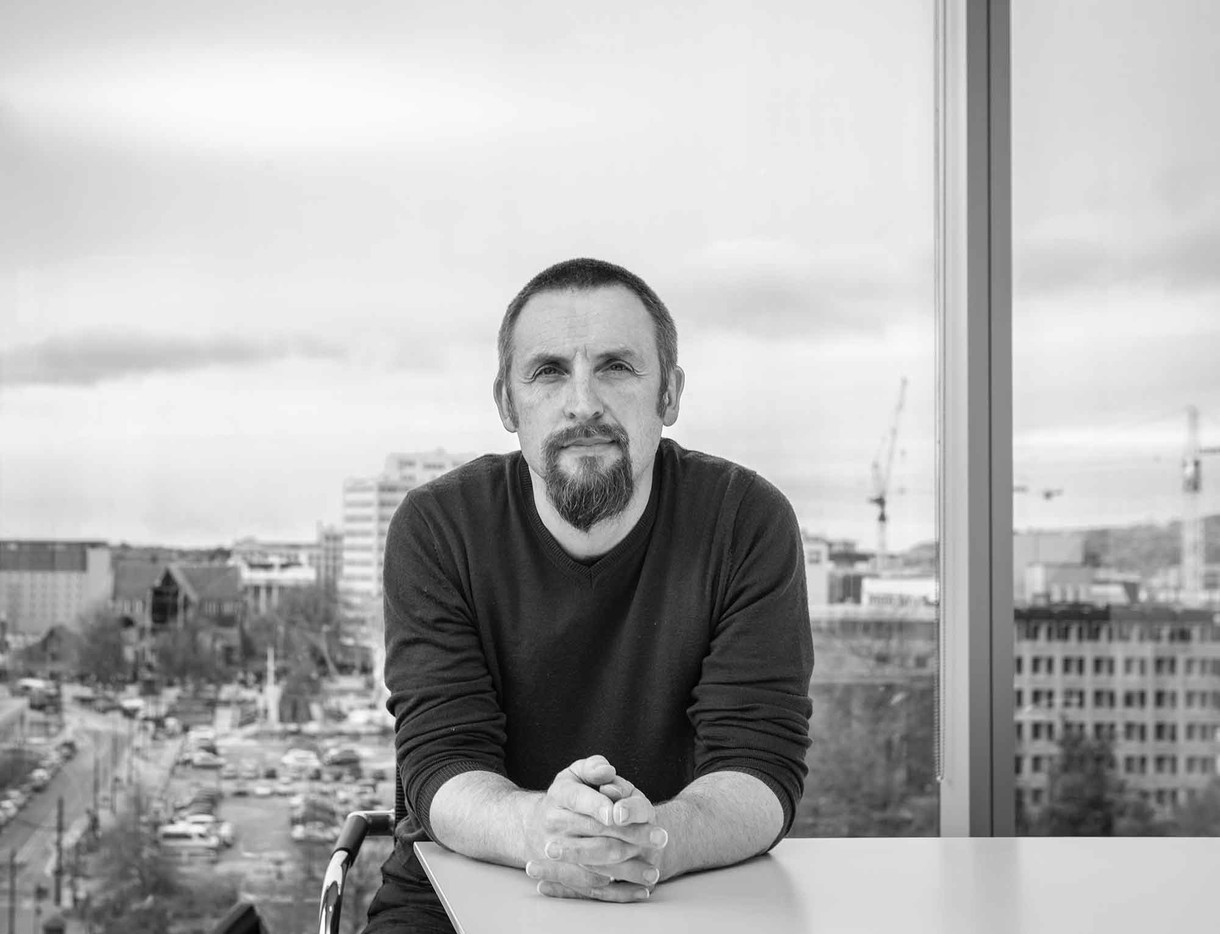B.
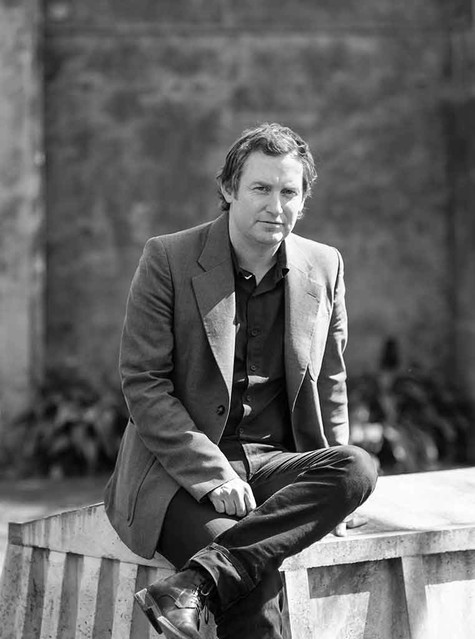
The regeneration must not be bureaucratised
Interview
Aaron Kreisler is Head of the School of Fine Art at the University of Canterbury. He talked to Bulletin about challenges and opportunities for the arts in our city and what art can contribute to the future of Christchurch.
Christchurch has had a stimulating creative community for a long time. There is a consciousness within Christchurch which sees a very strong place for the arts. We often look back at the artists, writers and poets that came out of Christchurch in the post war period. However I think in some ways that golden epoch can colour our attitudes; make people think everything to do with the arts in Christchurch is progressive and positive and I don't know if that's always a fair reflection. Golden ages can inadvertently mask other issues within society.
I am from Dunedin, but as a child I came here regularly and my parents are from Christchurch. I've always felt slightly outside Christchurch. Maybe it's the notion of class. Class was something present on the surface in Christchurch. I never experienced it to the same extent in other communities I grew up in. However over more recent years, that sense of class hasn't been so strong. The notion of this community changing has been prevalent, not just in a physical sense, but very much in a cultural and social sense. That makes Christchurch fascinating. It opens up possibilities.
Over the last five years since the earthquakes there have been some really interesting initiatives. Permanent spaces have not been able to open and arts organisations have had to deal with a once in a lifetime situation. How the arts community has handled this is an intriguing case study.
The transitional artistic and cultural movement is really important. It has been very much part of the broader discussion about culture and society here and outside of the Christchurch region. But sometimes what gets missed in those discussions are grassroots arts activities. For example a lot of artists lost studios. Some left, some stayed, some are still deciding whether they come back, some have started their entire practice again. That's a very interesting place to be in; one consequence is losing years of work, but starting again can be a really positive experience. People are still living through the aftermath in ways that are very present in terms of their social situations. I think one of the key concerns for artists is deciding whether they address the effects of the earthquake directly, or whether they think of other ways their work can operate, which isn't about that topic.
Spaces like Dog Park 1 and North Projects offer a model for working in a situation of crisis which isn't just about transition. At what point does something stop being about the moment of actual transition? That is a question for the broader arts community. What do you celebrate? What is ephemeral? What is about occupying temporary space? What things do you leave as permanent markers?
To me it goes without question that the arts are a fundamental part of any society. How you measure the success or otherwise of the arts is a much more complex package. That makes art hard to justify within certain organisations. But that shouldn't be a reason not to support the arts. Just because arts organisations and artists are able to create impressive things through their own means, doesn't mean that art thrives by being undervalued economically and socially.
I believe Christchurch can assert a dynamic new arts community with more information sharing across arts organisations, and for organisations to take risks. People are open to working together, they are starting to formulate ways to work together, but this needs more work. There also needs to be an understanding that there are limited resources. While we appreciate a collaborative convivial approach, art is also competitive and that shouldn't be stopped.
Looking at art made since the earthquakes, my major concern would be there is too much repetition. The funding model is becoming too determinant of the artistic activity. Relying on art to memorialise our recent history isn't enough. We have got to give artists space to do things beyond the feel good.
Art operates by not fitting into the system. You can't zone art into a particular space. It grows organically and artists respond to situations in sophisticated ways. We need to create a culture that appreciates this complexity, and we also need to realise that we're not always going to get what artists do. Art can't always be successful according to a tight set of parameters, because art fights with a framework.
We started the rebuild by discussing quality of design, architecture and urban flow. Now people are saying, no, we need to get it done, we've got the money now, if we don't use it we'll lose it. We're being undermined by a sense of panic, a feeling we should be further along, the central city should be fixed. And so now there are no discussions of whether a building or precinct has aesthetic appeal.
People speak in platitudes. They say this is going to be this amazing innovative centre, because we call it an innovative centre, and we've got break out spaces...But is it really truly new, or is it a repetition of other innovative spaces elsewhere? A word people use a lot in recent years is passionate. If you keep saying you're passionate, generally I would argue that you're far from it. You keep on using a term because you want to seem like that thing. This is happening in Christchurch with the use of words like innovation, experimentation, start-ups etc. Yet Christchurch isn't changing that much, so what makes these things innovative?
And indeed why do we constantly have to innovate? And why do we need constant growth? Organisations still measure success in terms of growth. Quantity versus quality, which one do you want? But success is not being measured in those terms, you need to get quantity, quantity, quantity, so you sound elitist if you say that you want quality. People don't question quality around material goods. But as soon as you apply quality to education or art you're accused of being a snob.
Where are the places for artists to make truly exceptional, challenging artworks? They're not there. We might put money aside for an art project, like the river project, but bureaucracy absorbs most of the funding, then we shoulder tap an artist and say: "Can you do this?" But we've already set all the terms. The project needs to be culturally aware, historically connected, place conscious, approachable to a whole range of demographics. Great! But you've forgotten the artwork, you've forgotten the artist's experience, you've forgotten all that. Projects go through so many hands that ideas are over processed, they have lost all their nutrients. Then we ask an artist: "Can you put your name on this?"
If we work in the arts, we should be able to feel we are adding value or creating opportunities, without taking money away from the artists. Too many people are filtering.
There has got to be a way to not completely bureaucratise the regeneration of this city. We have to start to bring artists to the table. Artists bring a different set of values which will make more interesting work and change the process itself. We have to be willing to let go of a certain amount of control. And we need to respect that the people doing the work are taking always the greatest risk. The problem is that we think that the greatest risk is the money.
We have unrealistic expectations as to what the artist's role is. We think we appreciate what artists do, but we don't necessarily know what they do. Artists are often on the margins socially and financially, but we want them to provide for our well-being, or for some indeterminable social good. This should also be framed around ideas of success, failure and public value. Constant success is impossible. But that is usually the expectation we place on artists. So, I would argue that we need to adjust our value system, to allow room for some great failures, because only through providing this space will we truly be open to challenging, rewarding and memorable art happening.
